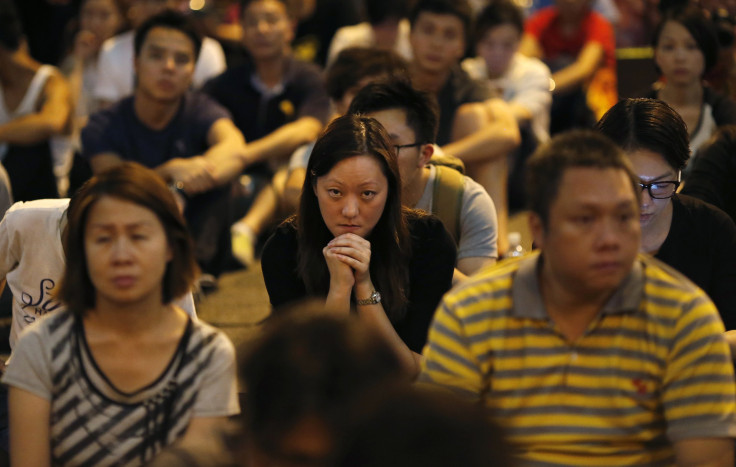China Condemns US For Distorting Facts About Hong Kong Protests, Asks It To Stop Interfering

Beijing on Friday criticized the U.S. Congress for spreading contradictory views in a “deliberate attack” against China and its policies. The statement was made by Hong Lei, spokesperson for China’s foreign ministry, following weeks of intense pro-democracy protests in Hong Kong.
Hong’s statement was a reaction to an annual report from the U.S. Congressional-Executive Commission on China, which slammed the Chinese government for following an authoritarian model at the expense of freedom of speech and human rights. The CECC report also urged the U.S. to provide more support to Hong Kong’s democracy protests and push for universal suffrage. Hong accused the U.S. of interfering in its internal affairs and for creating a false image of China.
"The report by this U.S. body distorts the facts and is a deliberate attack on China. We express our extreme dissatisfaction about it," Hong said in a press conference, according to Reuters, adding: "We demand that this committee stop this wrong interference in and damaging of Sino-U.S. relations. This body should speak and act cautiously, stop sending the wrong message to Occupy Central and other illegal activities or provide them support."
The CECC report had also said that U.S. congressional leaders should raise the issue of democracy in Hong Kong in meetings with China, and help the city's residents move toward a democratic government in line with Beijing's original promise.
“Members of Congress and the Administration should increase support for Hong Kong’s democracy through statements and meetings at the highest levels and visits to Hong Kong. Hong Kong issues should be raised in meetings in Beijing with central government officials given their overriding role in deciding questions of Hong Kong’s political development,” the report said.
The Chinese Communist Party rules Hong Kong using the "one country, two systems" method, which allows the region wide-ranging autonomy, including a target of universal suffrage by 2017. However, massive protests began last month in Hong Kong after Beijing said that it would pick a group of candidates for the residents to choose from for the office of chief executive in 2017. Activists claimed that the move negated the idea of universal suffrage and that China only intended to assert its authority on Hong Kong.
© Copyright IBTimes 2024. All rights reserved.






















